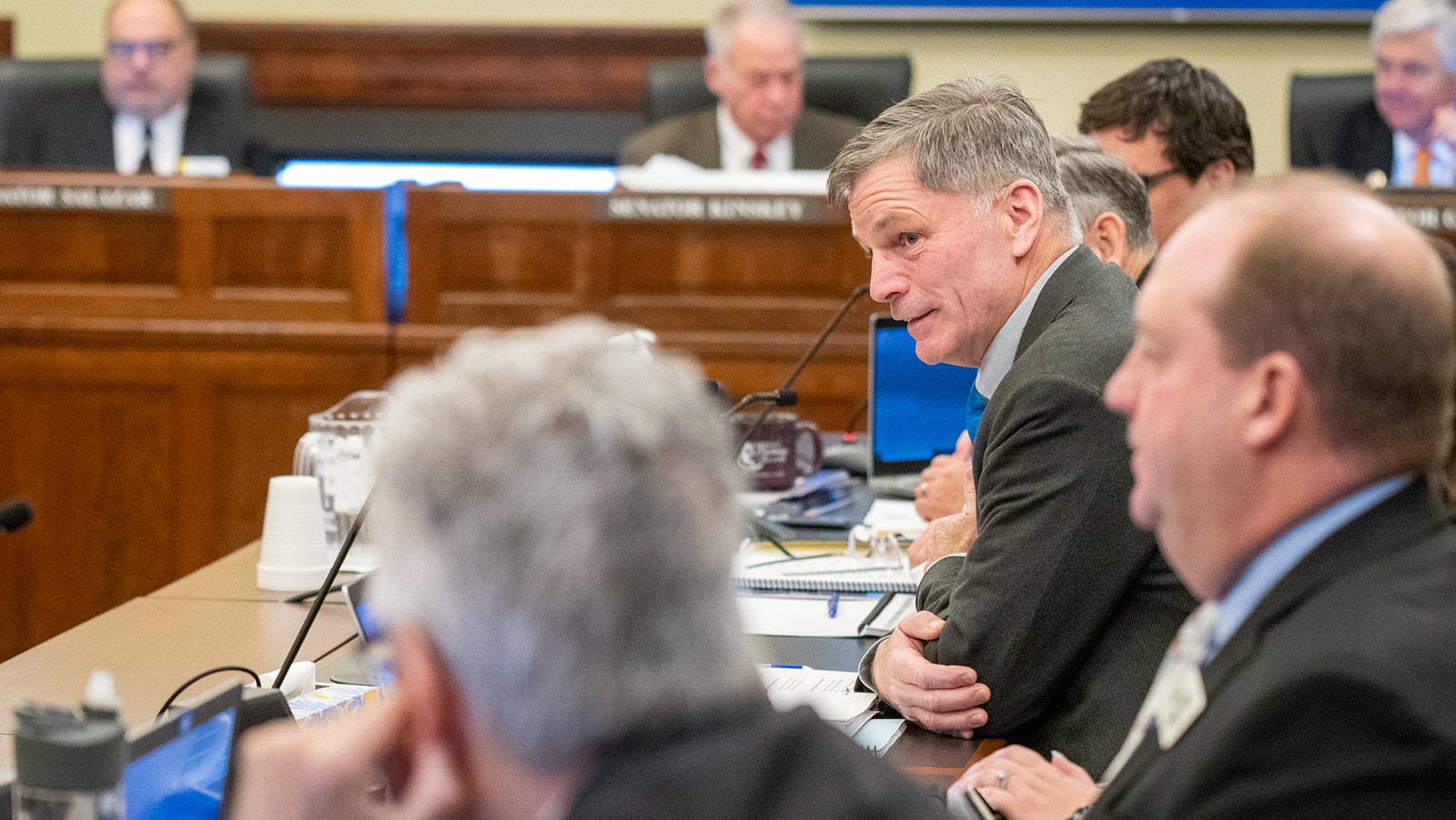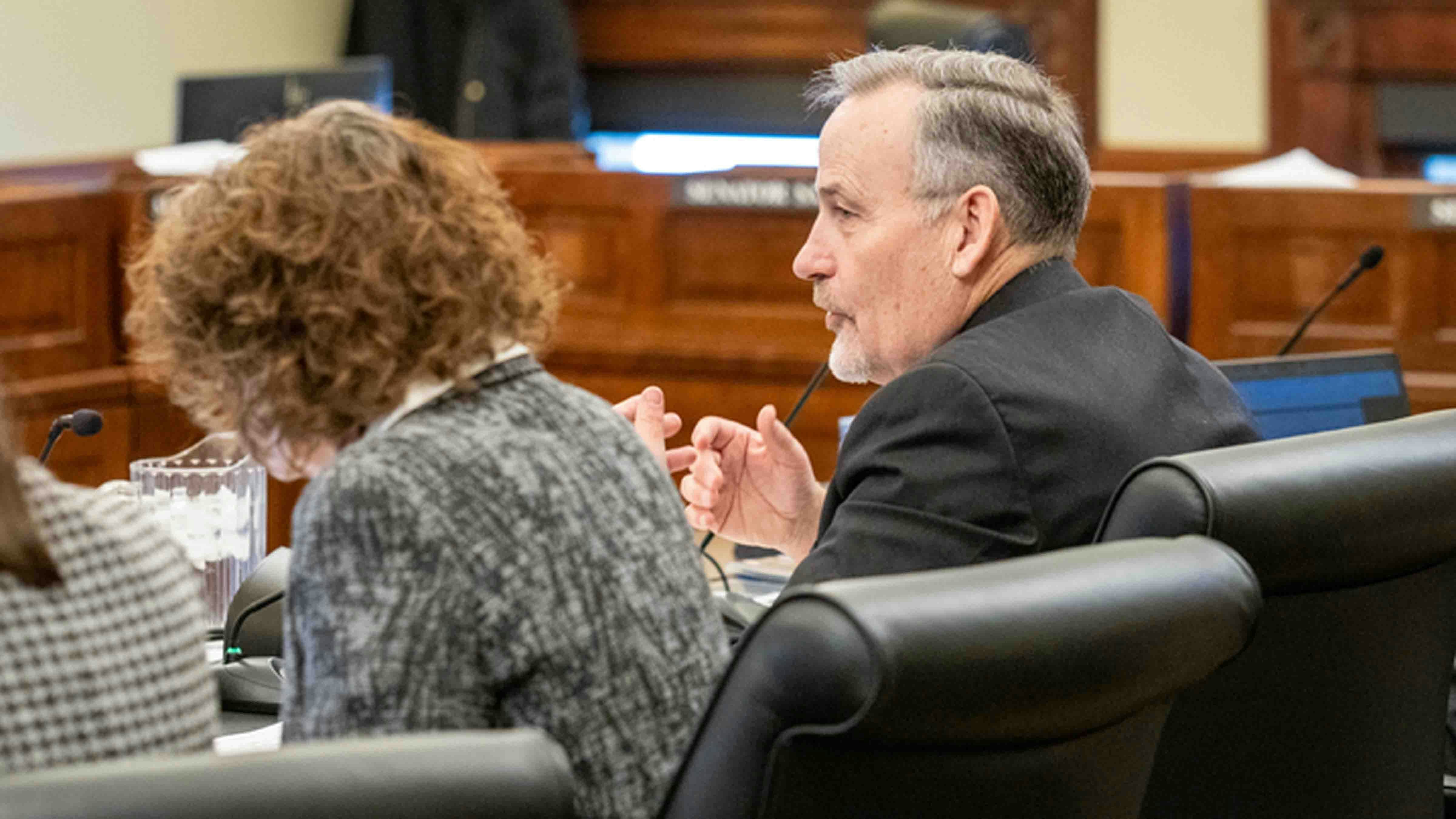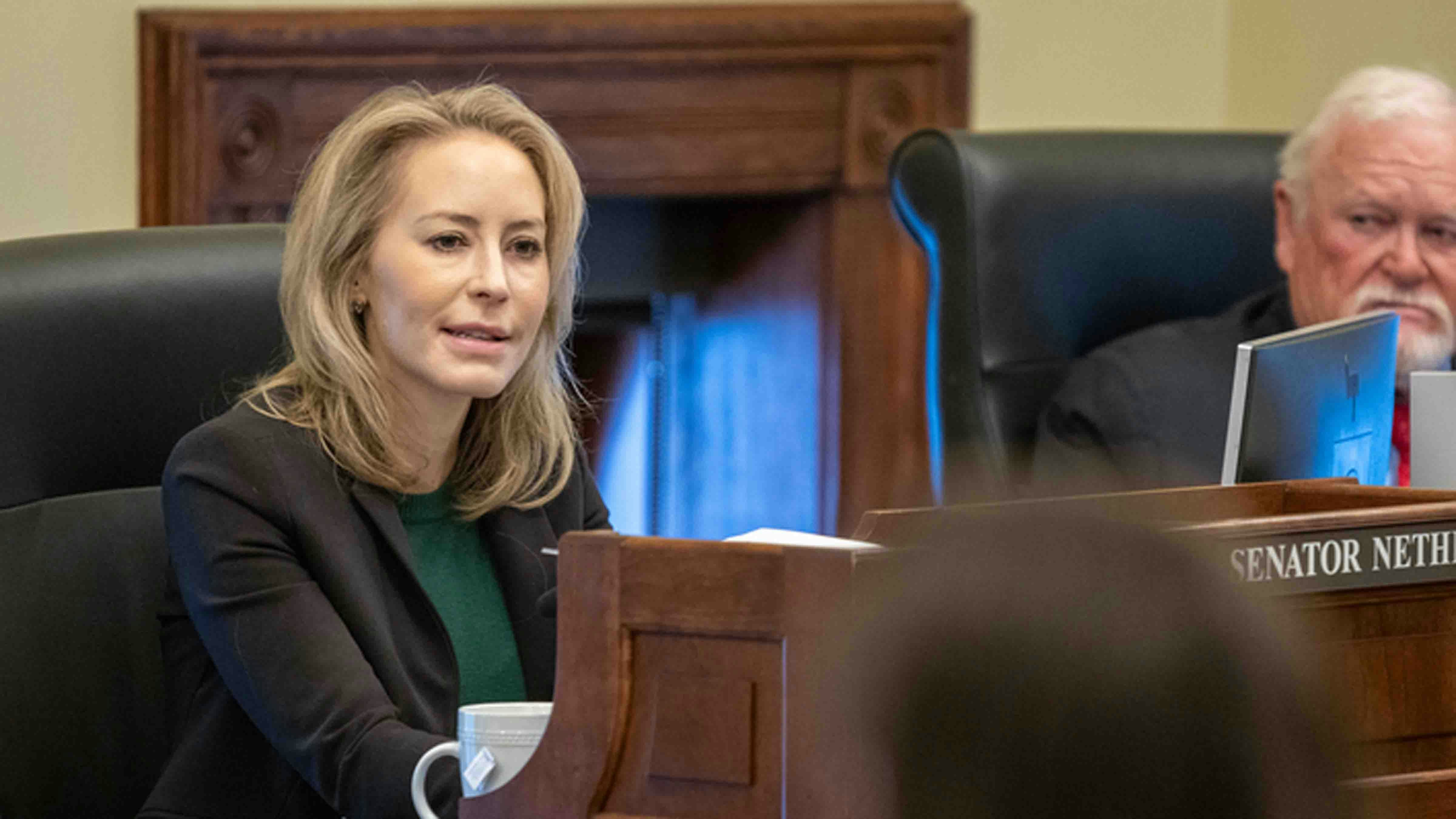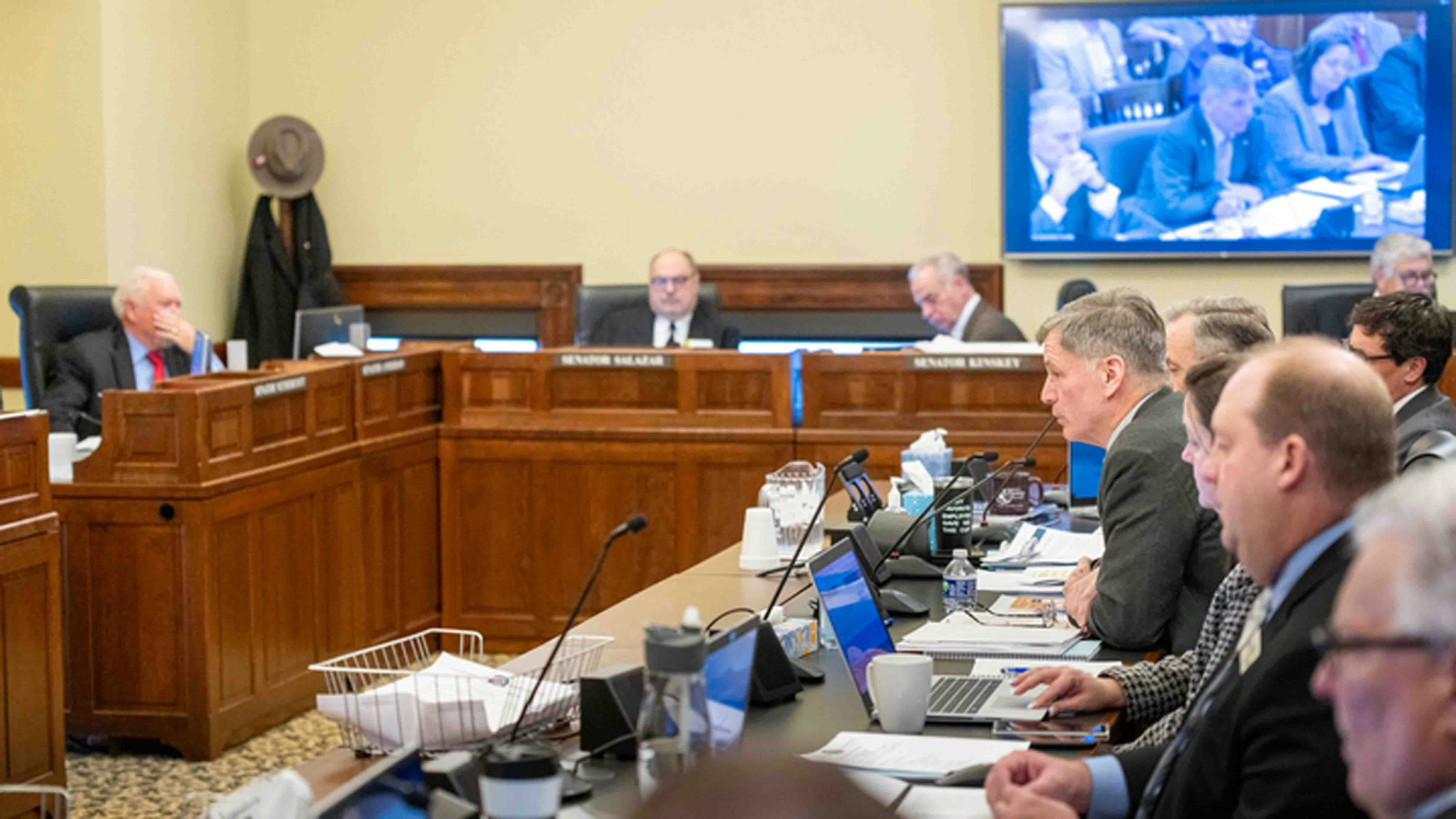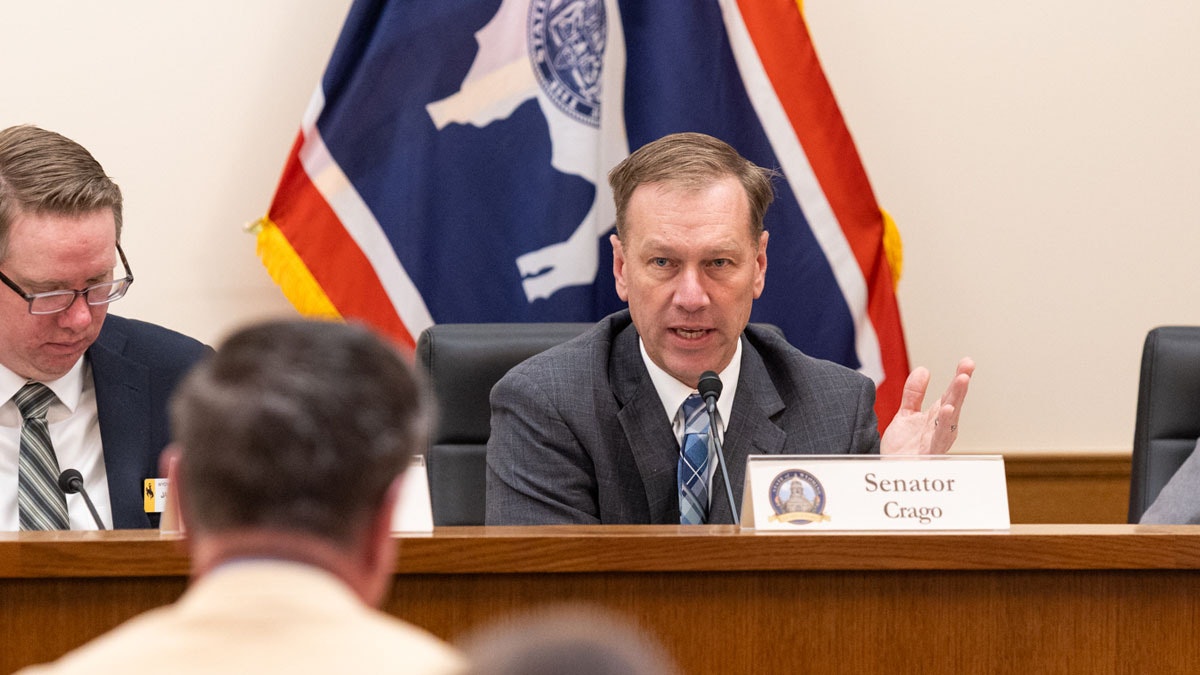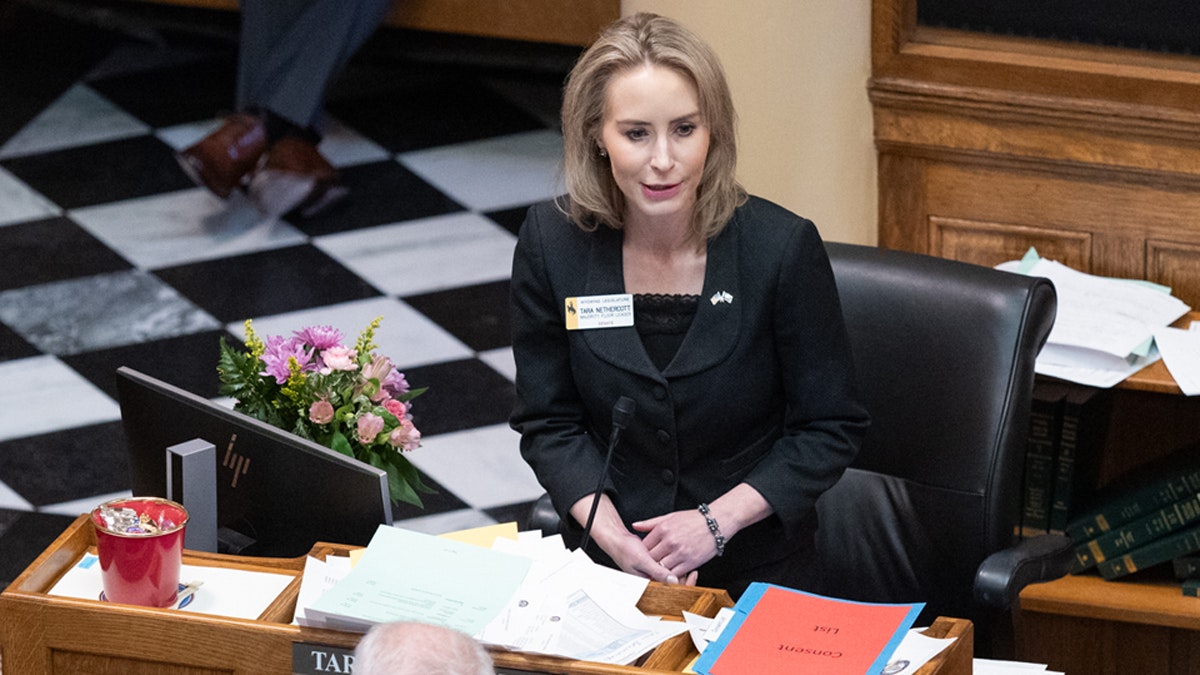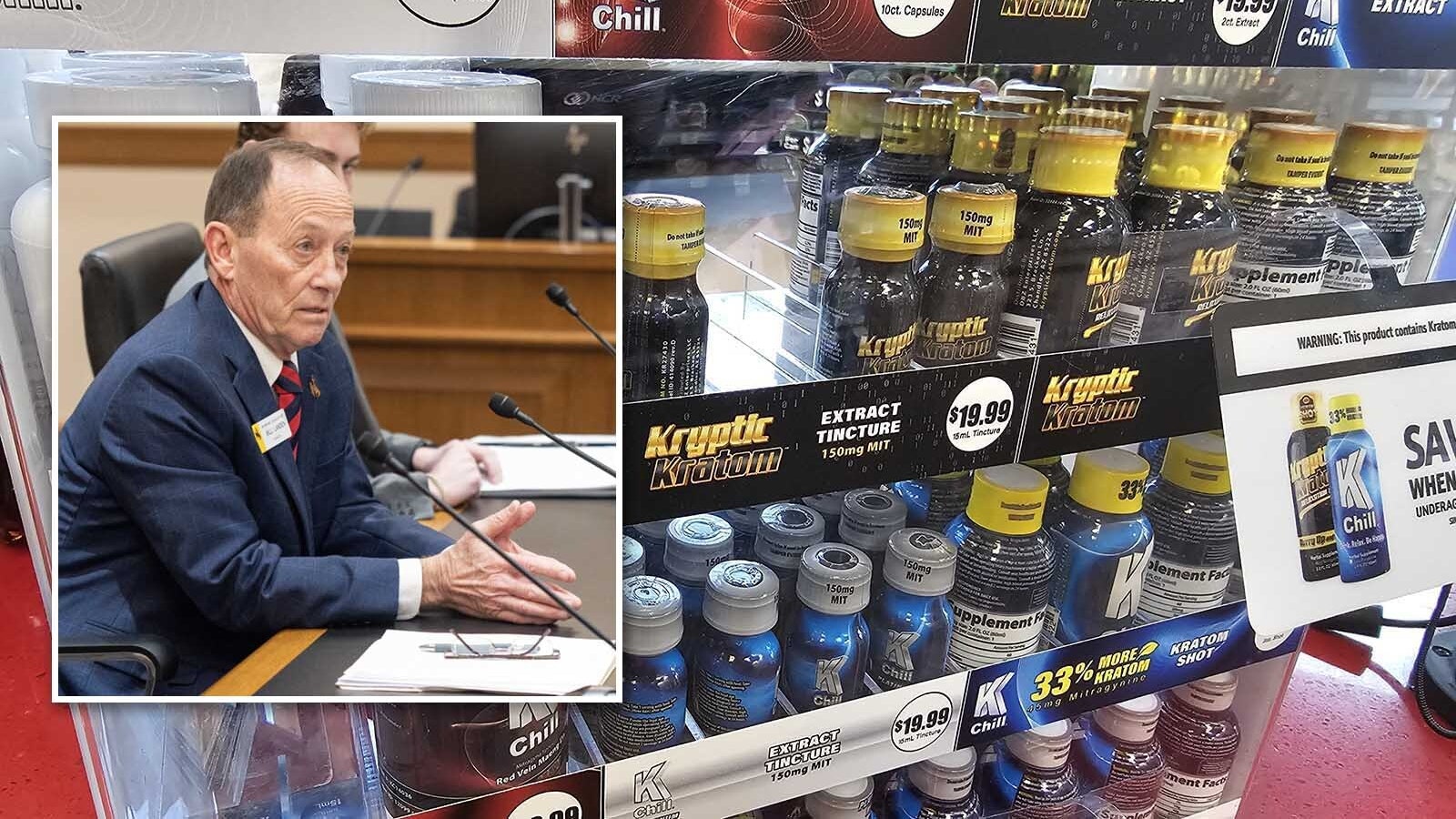CHEYENNE — Gov. Mark Gordon said the $9.9 billion biennial budget he presented Tuesday reflects Wyoming having to position itself against President Joe Biden’s administration, which is “one of the most pressing adversaries” to the Cowboy State.
How Gordon intends to fight this pressure is with various spending proposals in his recommended 2025-2026 budget, which he presented Tuesday to the Joint Appropriations Committee at the Wyoming Capitol.
“We cannot yet know how drastic the implications of the Biden administration’s regulations on mineral leasing, air quality, land use will be and whether they compromise our revenues,” Gordon said. “But we can be assured that without relief they will have a detrimental effect.”
Gordon stressed that the Legislature needs to focus on needs rather than wants when it meets in February to hammer out a budget for the next two years, and prepare for an “unchecked federal government bent on usurping state authority.”
“We must prepare for a future that could well see a decline in revenue and increase in inflationary pressures despite all our efforts to the contrary,” he said.
In 2020, the state made substantial cuts in response to losing about ⅓ of its overall revenue, mostly through drastic reductions in coal and oil sales and prices. Although Wyoming’s fiscal picture has brightened substantially since then, there are many unanswered questions that remain about the state’s long-term fiscal outlook because of the uncertain future of the state’s legacy fossil fuel industries.
‘Cannot Afford To Be Timid’
Gordon said it’s never been easy to project Wyoming’s revenue, but that it’s become more difficult as the nation finds itself at an inflection point. He mentioned the current political climate in Washington, D.C., where Democrats control the Senate as giving him little hope that Congress will hold the Biden administration in check for its anti-fossil fuel policies that have been initiated for the purpose of fighting climate change.
“So, we cannot afford to be timid when it comes to protecting Wyoming’s interests,” he said.
Gordon said Wyoming also faces an onslaught of federal rulemaking from the Environmental Protection Agency. He said these rules can be “crippling at worst, and Byzantine at best.”
He is proposing bolstering the Wyoming Department of Environmental Quality with increased staff and $3.4 million in additional funding to combat “environmental activism.”
“The Biden administration’s policies are holding back Wyoming’s most profitable industries like oil, gas and coal, industries that have done much to fund our schools, programs and ability to meet the needs of Wyoming citizens,” Gordon said.
In recent months, Gordon has drawn national attention, including an interview on the CBS News show “60 Minutes” on Sunday, for pledging to make Wyoming a carbon negative state.
While addressing the Appropriations Committee, Gordon blamed states that have goals of attaining net-zero carbon emissions for causing large increases in electricity prices. Some believed this was the cause of recent requests by Rocky Mountain Power to raise electricity rates.
Net-zero is the balance between the amount of greenhouse gas produced and the amount that's removed from the atmosphere. Carbon negative, as the governor has explained it, is using better technology to reduce overall carbon output from current levels.
“I see innovation allowing us to reduce emissions while also enabling us to provide reliable and affordable energy, which I believe can be best achieved through the continued use of fossil fuels,” Gordon said.
State Rep. John Bear, R-Gillette, isn’t convinced and said Gordon’s being hypocritical. He believes the governor has not effectively explained why the state will benefit from going carbon negative.
“It should be comforting to hear the governor say what the rest of us have all been thinking — net zero is an untenable, expensive technological dream,” Bear said. “But his lack of consistency leaves me fearful. He knows it’s expensive, and therefore owes us an explanation of just how much his ‘net negative’ goals will cost us in Wyoming.”
Money For Court
Gordon said Wyoming needs to use its financial resources to proactively defend its interests in court. His budget proposal includes adding $1 million to the Federal Natural Resources Planning Account (FNRPA) to defend Wyoming in federal court cases.
Gordon mentioned how Wyoming was able to use money from this account to push back against the BLM’s controversial draft Resource Management Plan for the Rock Springs area.
The state was able to tap into this account after the BLM released its proposed RMP plans by using $50,000 to assist the Wyoming County Commissioners Association with managing its analyses of the draft RMP in comparison to its own county land use plans.
The comment period for the proposed plan was extended to Jan. 17, and Gordon established a series of public workshops, where a task force will consider public input to present to the BLM.
Gordon’s Chief of Staff Drew Perkins said funding FNRPA, which has been used to support most of Wyoming’s energy litigation, allows the state to hire outside counsel, experts and perform data analysis to argue its points in court.
Sen. Tara Nethercott, R-Cheyenne, co-chair of the Appropriations Committee, indicated that she may oppose this proposal. She questioned whether the money goes toward paying millions of dollars to outside attorneys, to which Perkins affirmed.
“I’ve been troubled with the increasing practice of seeing litigation funds with tens of millions of dollars allocated to it because it doesn’t seem to make any pragmatic sense to me about that amount of funds and the purpose of those funds,” Nethercott said. “It’s not fiscally prudent or conservative in any way, shape or form.”
Gordon is proposing an additional $695,000 for the state Office of Consumer Advocate (OCA) to bolster the state’s ability to fight cases like the rate increase, which its attorneys were involved in doing.
“We need to be able to defend our citizen’s right to affordable, reliable and dispatchable power against unrealistic policies and taxes levied locally, but paid universally across the entire grid,” Gordon said.
In October, the state Agriculture Committee advanced a bill dedicating $50 million to fighting the BLM plan.
Perkins mentioned how the state hired outside counsel to oppose the Rocky Mountain Power increases because it did not have enough expertised staff at OCA.
“Either we don’t have the capacity because of (staff) numbers or technical expertise,” he explained.
Nethercott said the state should evaluate the type of people it’s hiring for the OCA and whether it needs to increase salaries so it can avoid paying exorbitant costs for outside counsel in the future.
“Rather than doing tens of millions of dollars of litigation funding to outside counsel,” she said.
The governor’s office also has $1.2 million dedicated in 2021 for the purpose of fighting efforts that try to stop the export or production of coal. Perkins recommended broadening the language that was associated with this legislation to allow Wyoming to use the money for other purposes.
Perkins said the Biden regulations that could harm Wyoming are wide sweeping, ranging all the way from air quality to education. He said many of these policies are coming out in the form of administration guidance, which Perkins finds even more “insidious.”
“Because you don’t have the ability to challenge it or the review or comment you have in rulemaking,” he said.
Other Costs
But Gordon also acknowledged the more than $1 billion Wyoming received from the federal government in various forms of COVID-19 relief. Gordon said Wyoming was able to use and invest the money, which is now mostly spent or obligated, in a way that will benefit the state’s future.
How or whether the state wants to replace the $323.9 million in general funding supported by these grants, mostly concentrated in the Departments of Corrections and Health, will be one of the major questions of the 2024 budget session. During the last budget session in 2022, the state was able to use around $80 million in federal matching funds to avoid severe cuts to the state health department.
“This budget reappraised these services and tried to offer sustainable options to fund key areas that were supported by both chambers of the legislature in the 2023/24 budget,” Gordon said. “What is given can be taken away.”
“This Biden administration has taken some dead aim at the very industries that have built Wyoming, specifically our fossil fuel industries,” he said. “Ironically, the policies of this administration that they’ve established to limit mineral production has resulted in higher near-term commodity prices for our coal, oil and natural gas.”
These increases have led to state mineral revenues to come in higher than forecasted over the last two years. Gordon said although these increases may continue for the short term and allow the state to avoid budget cuts now, it’s important to remember the volatility of commodities, particularly within the energy sector.
He said Wyoming must accept the current trends of the world markets and an overall regulatory environment that is moving away from fossil fuels.
Last year, the Legislature set aside a historic $1.5 billion in savings. Much of that money went into permanent savings, which produces about $1,400 per resident in investment revenue per biennium.
Gordon’s 2025-2026 budget includes an additional $265 million to the Permanent Mineral Trust Fund, increasing the size of this fund to $1.6 billion. He also wants to add $265 million to the Common School Permanent Land Fund.
After Gordon’s recommended savings, there is still $48.9 million remaining that can be appropriated as the Legislature sees fit.
Inflation has slightly dipped in Wyoming and the rest of the nation in recent months. Gordon said Wyoming residents are still “acutely” feeling the effects of inflation, which is “a perspective we must respect,” he said.
Leo Wolfson can be reached at leo@cowboystatedaily.com.

